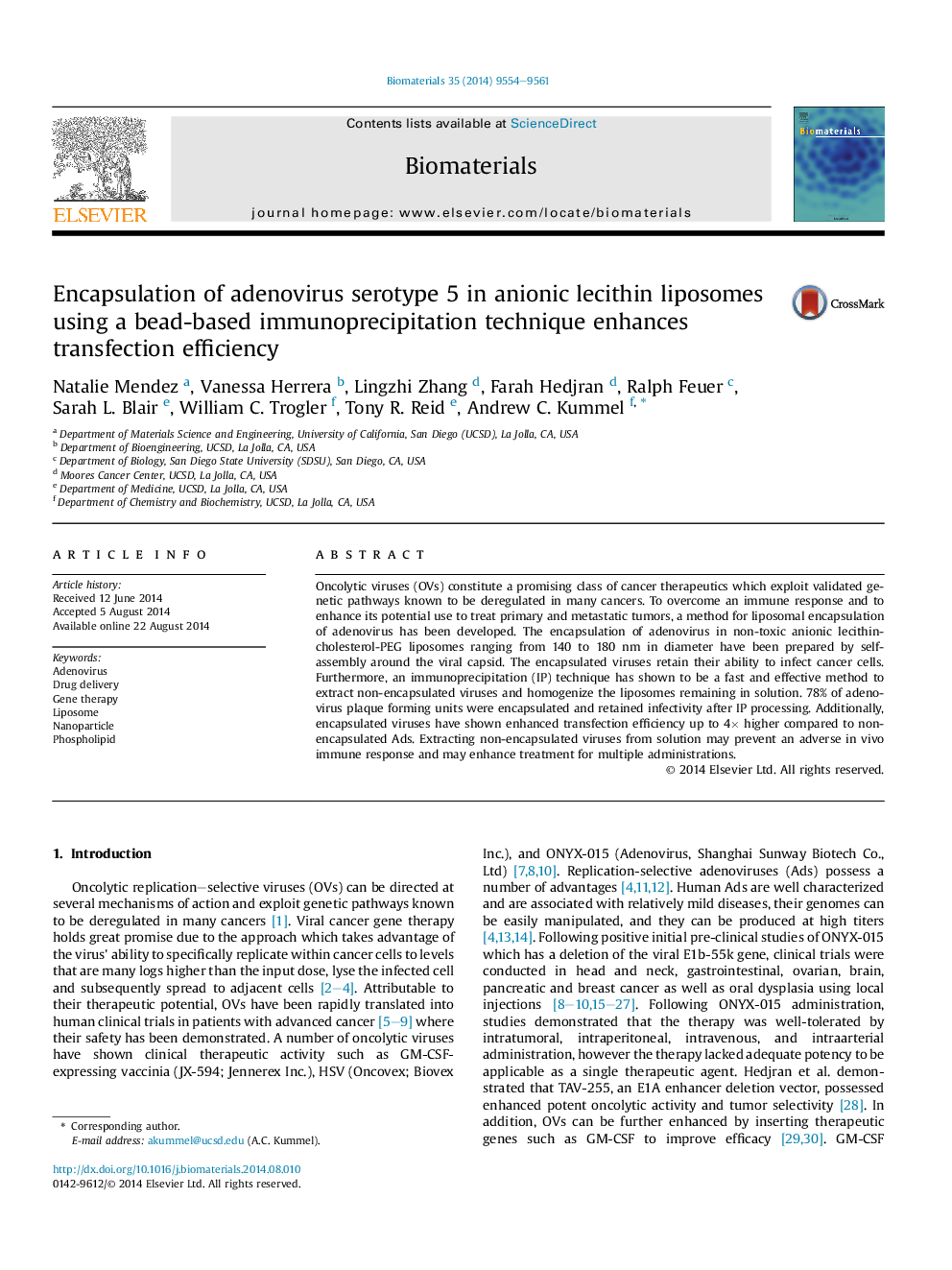| Article ID | Journal | Published Year | Pages | File Type |
|---|---|---|---|---|
| 10227286 | Biomaterials | 2014 | 8 Pages |
Abstract
Oncolytic viruses (OVs) constitute a promising class of cancer therapeutics which exploit validated genetic pathways known to be deregulated in many cancers. To overcome an immune response and to enhance its potential use to treat primary and metastatic tumors, a method for liposomal encapsulation of adenovirus has been developed. The encapsulation of adenovirus in non-toxic anionic lecithin-cholesterol-PEG liposomes ranging from 140 to 180 nm in diameter have been prepared by self-assembly around the viral capsid. The encapsulated viruses retain their ability to infect cancer cells. Furthermore, an immunoprecipitation (IP) technique has shown to be a fast and effective method to extract non-encapsulated viruses and homogenize the liposomes remaining in solution. 78% of adenovirus plaque forming units were encapsulated and retained infectivity after IP processing. Additionally, encapsulated viruses have shown enhanced transfection efficiency up to 4à higher compared to non-encapsulated Ads. Extracting non-encapsulated viruses from solution may prevent an adverse in vivo immune response and may enhance treatment for multiple administrations.
Related Topics
Physical Sciences and Engineering
Chemical Engineering
Bioengineering
Authors
Natalie Mendez, Vanessa Herrera, Lingzhi Zhang, Farah Hedjran, Ralph Feuer, Sarah L. Blair, William C. Trogler, Tony R. Reid, Andrew C. Kummel,
